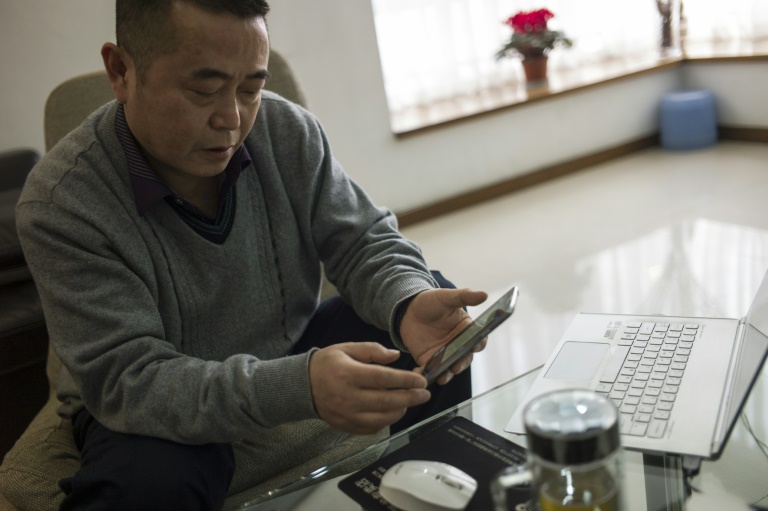
China’s first “cyber-dissident”, whose website reported on sensitive topics including human rights, is expected to go on trial on Monday amid fears he is in bad health, sources familiar with the matter told AFP.
Huang Qi was arrested in 2016 for “leaking state secrets” and has since been held at the Mianyang Detention Center in southwestern Sichuan province — his home region — without a trial date.
Calls to the Mianyang Mianyang Intermediate People’s Court, which is handling the case, went unanswered.
“American diplomats attempted to attend Huang Qi’s trial but were denied access to the courtroom,” a US embassy spokesperson told AFP.
Several activists who said they were travelling to Mianyang to attend the trial sent photos and videos to AFP showing police stopping them en route Monday morning.
Huang ran a website called “64 Tianwang” — named after the bloody June 4, 1989 crackdown on Tiananmen Square pro-democracy protesters in China.
The site, which has reported on local corruption, human rights violations, and other topics rarely seen in ordinary Chinese media, is blocked on China’s mainland.
A volunteer at “64 Tianwang” told AFP that he was taken away “on holiday” Saturday by Sichuan police, who cited the cyber-dissident’s trial that was due to start this week.
“I am worried (for his safety),” the volunteer said on condition of anonymity. “But Huangqi is very proud, he won’t surrender.”
The volunteer was told he would be released once the trial was over.
Mianyang police did not answer AFP’s calls for a comment.
Chinese police in recent years have muzzled dissent by whisking away activists and holding them in a hotel room during sensitive events, giving rise to the term “being traveled”.
Fourteen non-profit organizations, including Amnesty International, Human Rights Watch and Freedom House, released a statement last November saying Huang was in danger of dying in police custody if he does not receive medical treatment for a host of severe health conditions.
Huang suffers from high blood pressure and late-stage kidney disease, but his mother Pu Wenqing’s attempts to get medical bail were denied in the past.
Huang’s work has repeatedly drawn the ire of Chinese authorities.
In 2009, he was sentenced to three years in prison after campaigning for parents of children killed in the 2008 Sichuan earthquake, which left nearly 87,000 people dead or missing and authorities facing huge public anger over shoddy building construction.
Five years later Huang and at least three citizen journalists who contribute to 64 Tianwang were detained by police after the site reported on a woman who set herself on fire in Tiananmen Square.
The website was awarded a Reporters Without Borders prize in early November of 2016. A few weeks later, Huang was detained in his hometown of Chengdu, according to Amnesty International.




